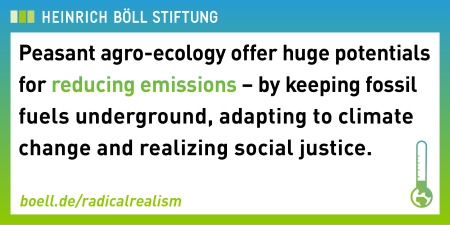
In light of the urgent findings of the new report published last week by the Intergovernmental Panel on Climate Change on avoiding an 1.5°C increase in average global temperatures beyond pre-industrial levels, I very highly recommend reading some of the excellent articles compiled here by Lili Fuhr from the Heinrich Böll Stiftung (Foundation) on organizing strategies for keeping our planet safe from overheating and avoiding attendant extinction:
A Managed Decline of Fossil Fuel Production by Oil Change International shows that the carbon embedded in already producing fossil fuel reserves will take us beyond agreed climate limits. Yet companies and governments continue to invest in and approve vast exploration and expansion of oil, coal and gas. This chapter explores the urgency and opportunity for fossil fuel producers to begin a just and equitable managed decline of fossil fuel production in line with the Paris Agreement goals.
Another Energy is Possible by Sean Sweeney, Trade Unions for Energy Democracy (TUED) argues that the political fight for social ownership and democratic control of energy lies at the heart of the struggle to address climate change. Along with a complete break with investor-focused neoliberal policy, this “two shift solution” will allow us to address some of the major obstacles to reducing energy demand and decarbonizing supply. “Energy democracy” must address the need for system-level transformations that go beyond energy sovereignty and self-determination.
Zero Waste Circular Economy A Systemic Game-Changer to Climate Change by Mariel Vilella, Zero Waste Europe explains and puts numbers to how the transformation of our consumption and production system into a zero waste circular economy provides the potential for emission reductions far beyond what is considered in the waste sector. Ground-breaking experiences in cities and communities around the world are already showing that these solutions can be implemented today, with immediate results.
Degrowth – A Sober Vision of Limiting Warming to 1.5°C by Mladen Domazet, Institute for Political Ecology in Zagreb, Croatia, reports from a precarious, but climate-stabilized year 2100 to show how a planet of over 7 billion people found diversification and flourishing at many levels of natural, individual and community existence, and turned away from the tipping points of catastrophic climate change and ecosystem collapse. That world is brought to life by shedding the myths of the pre-degrowth era – the main myth being that limiting global warming to 1.5°C is viable while maintaining economic activities focused on growth.
System Change on a Deadline. Organizing Lessons from Canada’s Leap Manifesto by The Leap by Avi Lewis, Katie McKenna and Rajiv Sicora of The Leap recounts how intersectional coalitions can create inspiring, detailed pictures of the world we need, and deploy them to shift the goalposts of what is considered politically possible. They draw on the Leap story to explore how coalition-building can break down traditional “issue silos”, which too often restrict the scope and impact of social justice activism.
La Via Campesina in Action for Climate Justice by La Via Campesina in Action for Climate Justice by the international peasants movement La Via Campesina highlights how industrialized agriculture and the corporate food system are at the center of the climate crisis and block pathways to a 1.5°C world. In their contribution, La Via Campesina outline key aspects of system change in agriculture towards peasant agro-ecology and give concrete experiences of organized resistance and alternatives that are already making change happen.

Re-Greening the Earth: Protecting the Climate through Ecosystem Restoration by Christoph Thies, Greenpeace Germany calls to mind that greenhouse gas emissions from agriculture and the destruction of forests and peatlands contribute to global warming and dangerous climate change. His chapter makes the case for ecosystem restoration: Growing forests and recovering peatlands can sequester CO2 from the atmosphere and protect both climate and biodiversity. This can make untested and potentially risky climate technologies unnecessary – if emissions from burning fossil fuels and other greenhouse gas emissions are phased out fast enough.
Modelling 1.5°C-Compliant Mitigation Scenarios Without Carbon Dioxide Removal by Christian Holz, Carleton University and Climate Equity Reference Project (CERP) reviews recent studies that demonstrate that it is still possible to achieve 1.5°C without relying on speculative and potentially deleterious technologies. This can be done if national climate pledges are increased substantially in all countries immediately, international support for climate action in developing countries is scaled up, and mitigation options not commonly included in mainstream climate models are pursued.

